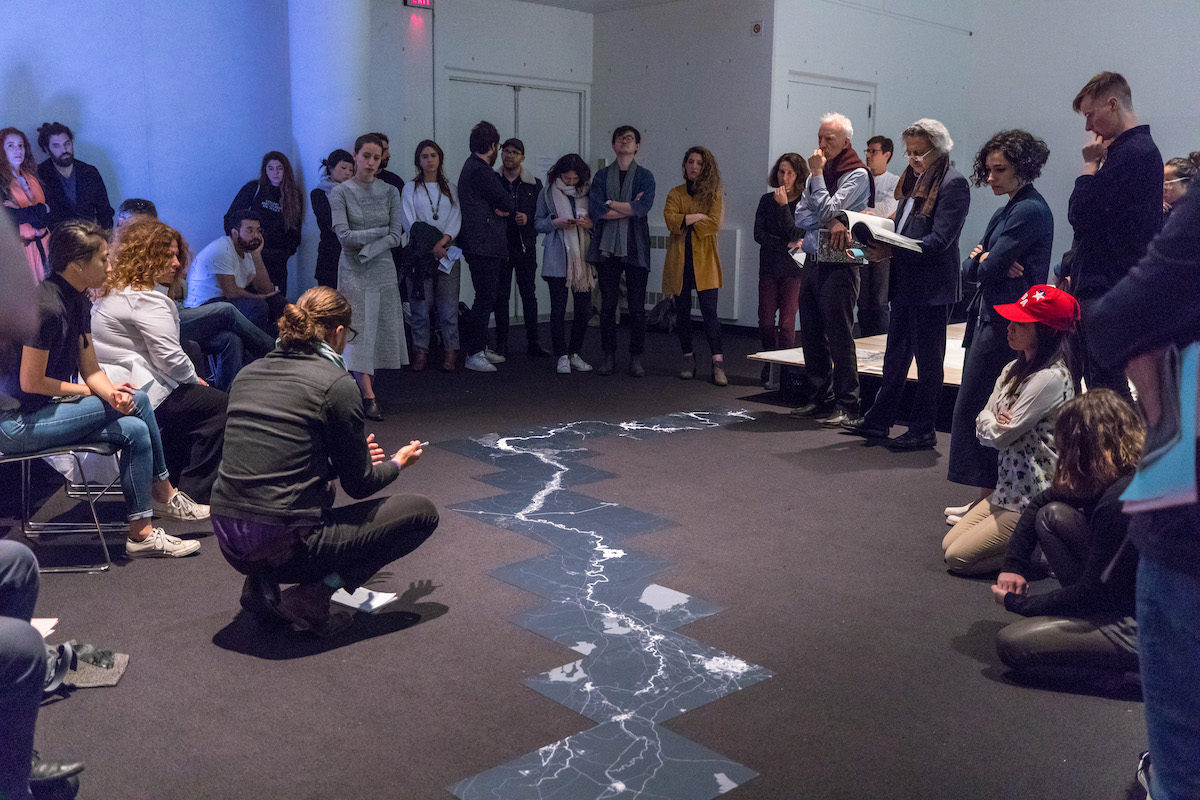Ecologies

The relationships among changing environments, varied forms and traditions of human settlement, and the material, infrastructural, and ecological networks required to sustain life raise some of the most challenging questions currently at the heart of public discourse and intellectual inquiry.
These topics, the problems they stir, and their increasing urgency require knowledge and engage insights from across a spectrum of previously distinct areas of study. At its most fundamental, ECOLOGIES is the cross-disciplinary study of the relationships between living and non-living entities on the one hand, and their social, cultural, and environmental contexts on the other.
Advanced study students in the ECOLOGIES domain learn to think about systems as interrelated and dynamic, that organisms and material resources are always products of their interactions with various ecological processes, social/cultural histories, technologies, economic and political systems, and ethical frameworks. These lenses will open new ways of seeing and new forms of inquiry, design, and policy-making that embrace these fluid starting points. Candidates will work across scales and across disciplines, taking on urgent issues of climate change, resource depletion, food and water insecurity, habitat and biodiversity loss, global policy and development disparities, regulatory misalignments, social and cultural upheaval, and inequities in wealth distribution and public health outcomes, to name a few.
This area of study is particularly for individuals who might pursue careers in the following areas:
- critical, transdisciplinary design, planning, and management practices working in the public realm and relative to broader environmental issues;
- advanced research and teaching in and adjacent to the design and planning disciplines, including the development of pedagogy around environment, infrastructure, and equity; and/or
- leadership in political, governmental, NGO, and non-profit realms, especially around public and environmental policy.
The curriculum will be shaped and taught by internationally recognized scholars and practitioners across various design disciplines and complemented by access to leading experts and resources at affiliated research centers and graduate schools throughout Harvard University and beyond.
Proseminar in ECOLOGIES: Interrelated, In-between, Dynamic
Our aim in the proseminar is to explore the inherent inventedness of ecology as a field of inquiry, its distinctly relational nature, and the potential breadth of it social, cultural, political, environmental, economic, and urbanistic implications. The work will draw on the social sciences, design research, material culture, urban theory, climate and energy studies, and public policy. Through reading, presentation, and discussion, we will explore various situated understandings of and attitudes toward nature and environment, across cultures and including inter-species and non-human lenses. We will touch on issues of planetary and atmospheric change and dynamics; resource cultivation and extraction technologies; production, distribution, and consumption networks, and their regulatory frameworks; forms of collective living at the scale of the city, region, and territory; and questions of to whom and for whom these networks, policies, and regulations are established (and who they exclude). Case studies will embody contemporary discourses and research methods, including reading and writing, visualization, simulation, projection, and communication.
Topics of discussion and research will include the following:
- ECOLOGIES + Cultures
- Ideas of Land, Landscape, Environment
- Human and Non-Human Lenses
- ECOLOGIES + Atmospheres
- Climate
- Energy
- ECOLOGIES + Geographies
- Territory, Infrastructure, Urbanization, Ruralification
- Regulatory and Policy Frameworks
- ECOLOGIES + Publics
- Identity, Race, Ethnicity, Power
- Governance, Social Infrastructure, Equity
- ECOLOGIES + Resources
- Cultivation Techniques and Technologies
- Extraction, Production and Distribution Networks
- Material Culture
Domain Head
Chris Reed, Professor in Practice of Landscape Architecture
Research Affiliations
Harvard University Center for the Environment
Just City Lab @ Harvard Graduate School of Design
Harvard GSD Office for Urbanization
Harvard Center for Green Buildings and Cities